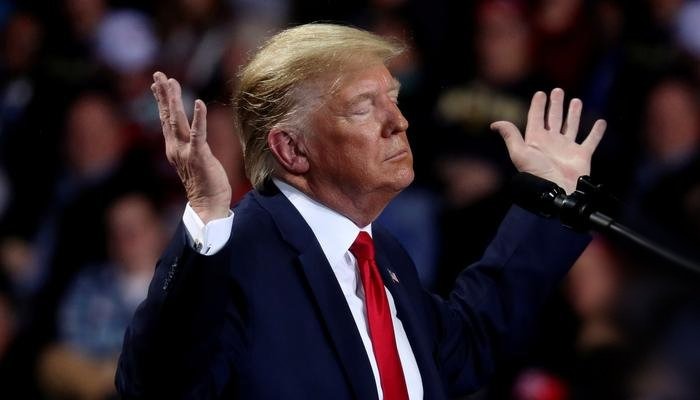The pandemic that cost Trump his reelection
United States has logged over 14 million COVID-19 cases and 274,311 deaths since the pandemic started
December 04, 2020

The world’s collective response to the coronavirus pandemic has been such that it could be taught at universities as a course on how not to manage a public health emergency.
In the last 11 months, since the first cases of the deadly virus were reported in China, the world has faced a crisis of management and political leadership. The failures were evident – so much so that it led to the defeat of US President Donald J Trump in November.
As of December 4, the United States has logged over 14 million COVID-19 cases and 274,311 deaths since the pandemic started. It has set global records of the highest infections and deaths in a single day from the illness.
But the Trump administration still chose to downplay the virus. It failed to take the necessary steps to shield its economy from slumping.
Under Trump, the debate for the US government was: the economy vs the pandemic.
In other words, keeping the economy running vs saving lives. This was a false dichotomy. The pandemic and the economy go hand in hand.
Read more: Donald Trump: The wrecking ball who came to 'fix' America
Once the pandemic is under control, the economy will automatically begin to recover.
For a while though, the US government did impose restrictive measures, but during that period it could have prepared a comprehensive medical strategy to fight the virus. It didn’t. Thus it kickstarted the economy without a proper plan and ended up slowing down its recovery even more.
Airports, for example, are now open in the US. But few want to board a flight for fear of being infected. Restaurants are ready to serve, but people don’t want to dine in. Schools are running, but parents are reluctant to risk their children’s lives.
In my opinion, the de-centralised nature of decision making in the US also caused significant damage. Throughout the pandemic, there was no centralised approach and no effort to bring all states and their governors on one page.
Read more: US Election 2020: Biden inches closer to victory with leads in Pennsylvania, Georgia
This led to more divisiveness and turned the pandemic into a political issue. Blue states were compared to red states and even the simple option of wearing a mask became controversial.
By politicizing the response, each state was left on its own.
Leadership is all about bringing people together. It is about uniting people especially in a time of crisis. The pandemic, if handled well, would have been an opportunity for Trump to unite a divided nation against a common enemy: the coronavirus.
While initially media briefings were conducted daily, with doctors and scientists taking the lead, that too was short-lived. These pressers should have been held statewide and the president should have toured the country to offer state assistance.
Read more: US Election 2020: Biden defeats Trump in crucial Wisconsin, Michigan fights
What eventually became Trump’s Achilles heel could have instead been his political and management masterstroke to help him win a second term.
But instead, Trump ignored the problem and wished it would go away on its own. It didn’t. There are many lessons here for leaders across the world who are battling this deadly virus.
Akhtar is a certified public accountant based in Florida, the United States











